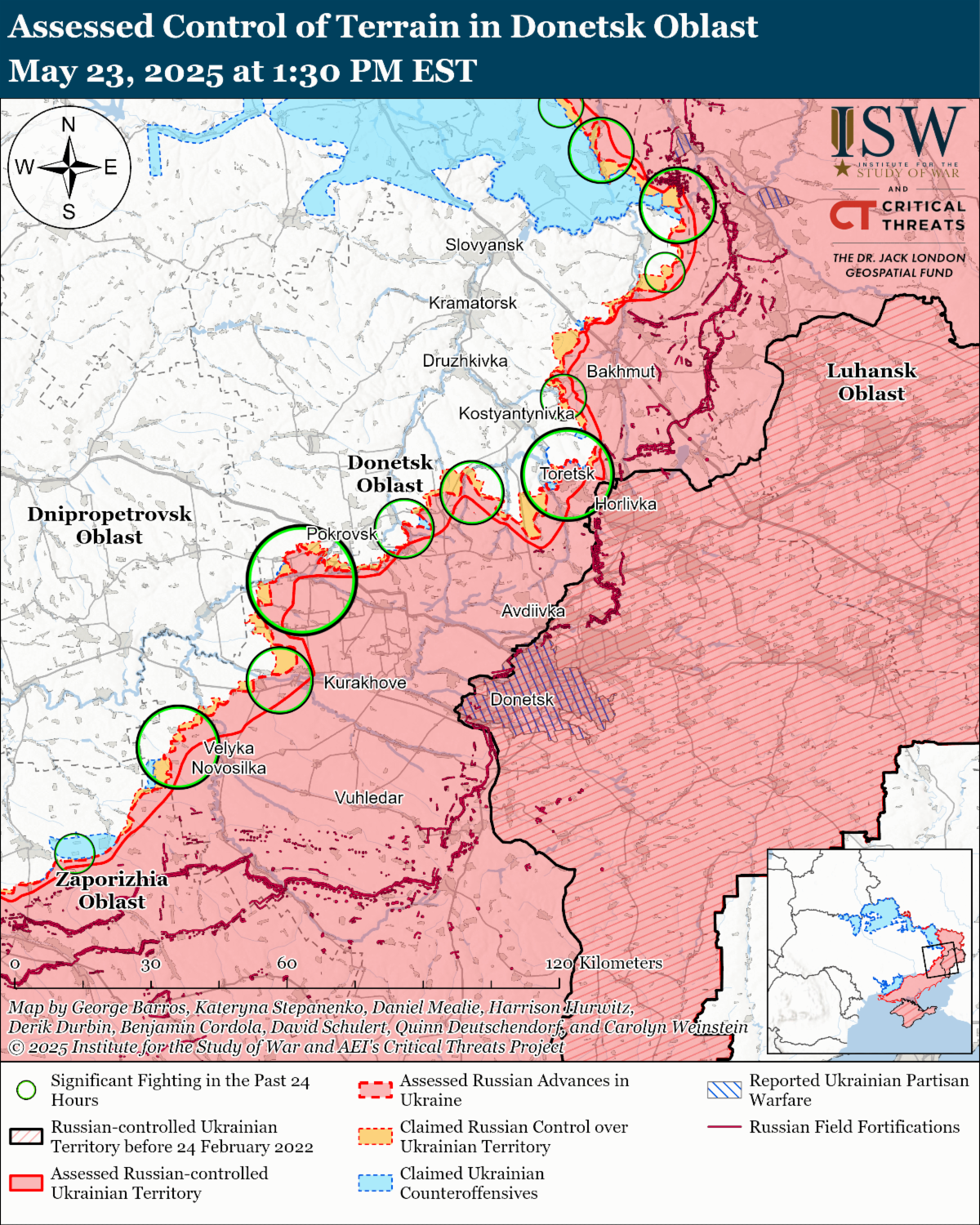Russian Foreign Minister Sergei Lavrov demanded that any future peace agreement in Ukraine include conditions to prevent the election and establishment of future pro-Western governments in Ukraine. Lavrov insisted on May 23 that any peace agreement must include conditions preventing the "repetition of what brought putschists to power through a bloody revolution," referring to Ukraine's 2014 Euromaidan protests and the Revolution of Dignity, which drove out Ukraine's former pro-Russian president Viktor Yanukovych. Lavrov also reiterated Russian President Vladimir Putin's repeated claim that Ukrainian President Volodymyr Zelensky is not the legitimate leader of Ukraine and claimed that Russia could negotiate with the leadership of Ukraine's Verkhovna Rada (parliament) instead of Zelensky.
Russian officials often deliberately misread the Ukrainian Constitution to claim that Zelensky's government is illegitimate since Ukraine did not hold presidential elections in 2024, although the Ukrainian Constitution and law prohibit the government from holding elections during times of martial law and external aggression. Russian officials have repeatedly characterized Ukraine's Euromaidan protests and Revolution of Dignity as a "coup," and leverage this narrative to reinforce Russia's claims that the current Ukrainian government is not legitimate and thus cannot negotiate with Russia. Lavrov's statement is also an explicit demand for regime change in Ukraine as a condition of any future peace agreement – a demand that Russian officials routinely make under the guise of demands for "denazification" in Ukraine. Russian officials will likely falsely frame any future pro-Western government in Ukraine as inheriting the illegitimacy of all Ukrainian governments since 2014 and set conditions to claim that any agreement that Russia concludes with Ukraine is non-binding.
Lavrov also rejected US President Donald Trump's recent suggestion that the Vatican could host negotiations on Russia's war against Ukraine. Lavrov claimed that negotiations in the Vatican would be "unrealistic" and that it would be "uncomfortable" for the representatives of "two Orthodox countries" to meet in the Vatican.
Key Takeaways:
- Russian Foreign Minister Sergei Lavrov demanded that any future peace agreement in Ukraine include conditions to prevent the election and establishment of future pro-Western governments in Ukraine.
- Ukraine and Russia conducted a 390-for-390 prisoner-of-war (POW) and civilian exchange on May 23 as part of a larger 1,000-for-1,000 exchange agreed upon during recent bilateral negotiations in Istanbul.
- Russian forces reportedly recently executed more Ukrainian prisoners of war (POWs) on the battlefield.
- Russian President Vladimir Putin approved an experimental application to monitor migrants, likely in an effort to placate Russian ultranationalist demands while continuing to leverage migrants to support force generation and mitigate labor shortages.
- Ukrainian forces advanced near Toretsk, and Russian forces advanced near Novopavlivka and Kurakhove.
| 




 [ISW] 이란 업데이트, 2025년 5월 23일
[ISW] 이란 업데이트, 2025년 5월 23일
 [ISW] 이란 업데이트, 2025년 5월 22일
[ISW] 이란 업데이트, 2025년 5월 22일